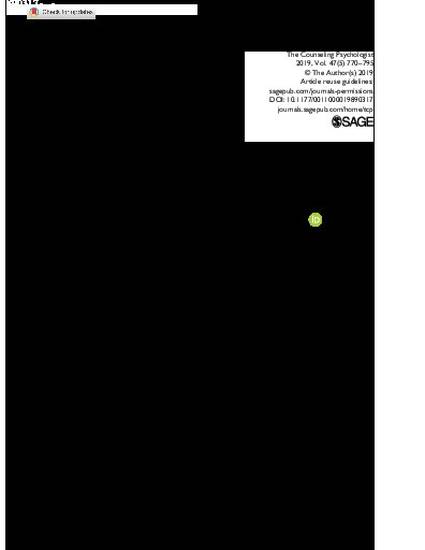
Medically unexplained symptoms (MUS) are common among veterans and are difficult to treat. Optimal treatment entails continued care from providers, yet this care may be influenced negatively by nonconcordance between veterans’ and providers’ views of MUS. We surveyed 243 veterans with MUS and evaluated the degree of nonconcordance perceived by veterans and their primary care providers regarding their MUS, as well as the effect of perceived nonconcordance on treatment behaviors and outcomes. Approximately 20% of veterans in our sample perceived nonconcordance with their provider regarding their MUS. In turn, perceived nonconcordance predicted important outcomes of interest, particularly veterans’ satisfaction with their provider. Perceived concordance with primary care doctors may be required for sufficient adherence to MUS treatment recommendations, such as seeking and maintaining psychological counseling. We discuss future research directions for counseling psychologists.
Available at: http://works.bepress.com/lalison-phillips/20/

This article is published as Phillips, L. Alison, and Lisa M. McAndrew. "Empirical evaluation of veterans’ perceived nonconcordance with providers regarding medically unexplained symptoms." The Counseling Psychologist 47, no. 5 (2019): 770-795. DOI: 10.1177/0011000019890317.